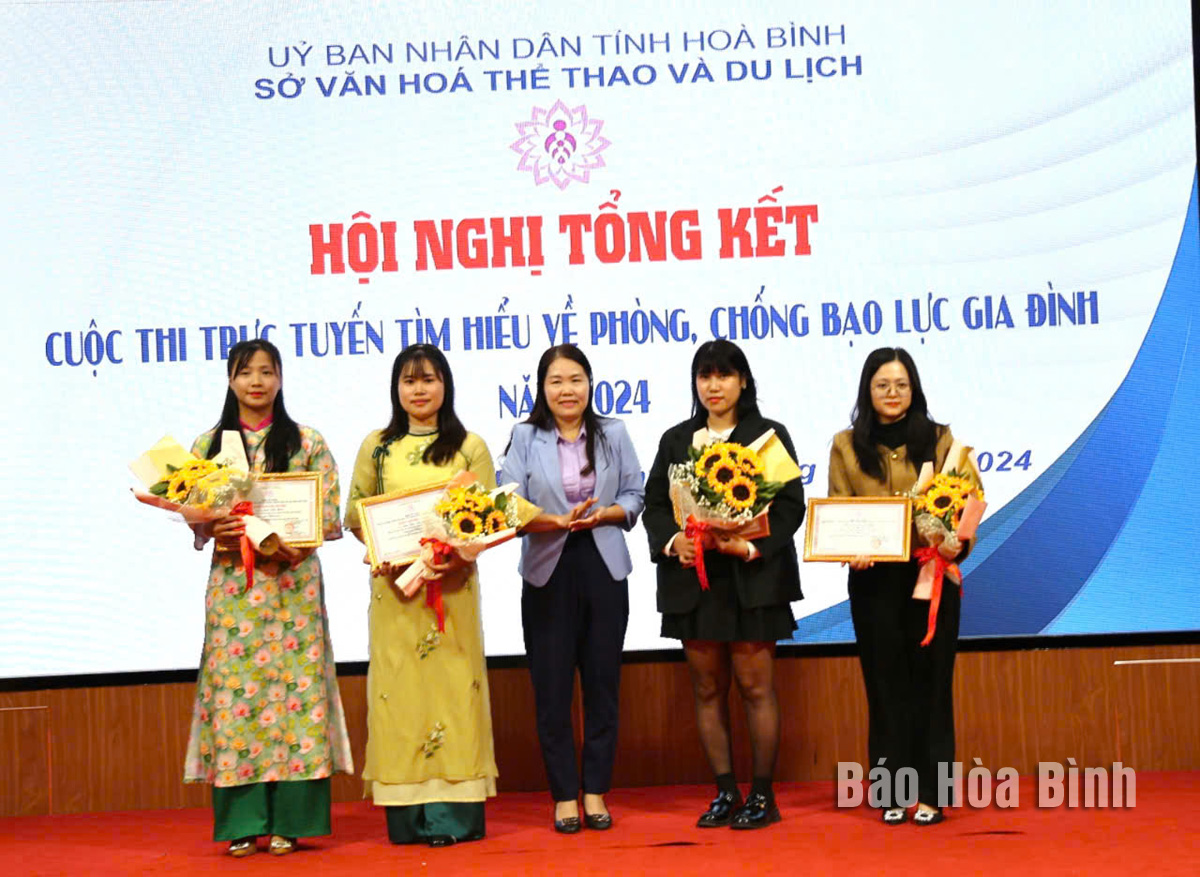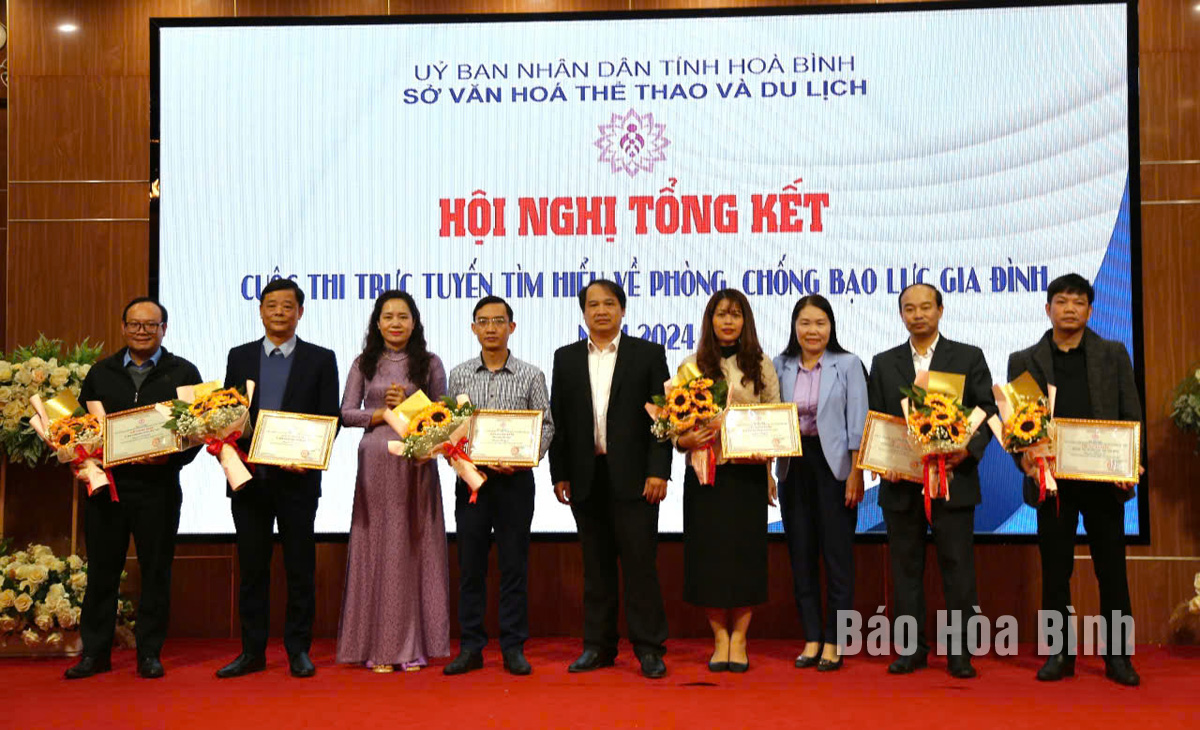
In the afternoon of December 17, the Department of Culture, Sports and Tourism organized a summary and awarding ceremony for the Online Competition on preventing and controlling the Family Violence in 2024.

The leaders
from the Provincial Committee’s Publicity and Education Commission awarded the
first prize to the individuals.

The leaders of
the Provincial Committee’s Publicity and Education Commission, the Department
of Culture, Sports and Tourism, and the Provincial Women's Union awarded the
prizes to the winning groups.
Online
Competition on preventing and controlling the Family Violence in 2024 aims to
continue promoting the dissemination of the Party's guidelines and policies,
the State's policies and laws on family work and the family violence prevention
and control; raising the awareness of the officers, the party members and the
people of all walks of life, and the sense of responsibility of all levels,
sectors and localities in implementing the family work and family violence
prevention and control; building a prosperous, progressive, happy family... The
competition takes place in 4 weeks, starting from 8:00 a.m. on November 18,
2024, and ending at 9:00 p.m. on December 13, 2024. The competition has
received the response and participation of a large number of the officers,
civil servants, public employees, employees, students, and armed forces in the
province. A total of 29,314 people participated in the 4 weeks of the
competition.
At the summary
conference, the Organizing Committee awarded the winning collectives and
individuals. The individual prizes include 4 first prizes, 8 second prizes, and
12 third prizes. The collective prizes include 1 first prize, 2 second prizes,
and 3 third prizes. Particularly, the collective first prize was awarded to the
Department of Education and Training; 4 individual first prizes include Luu Thi
Hoa from Thang Loi Quarter, Hang Tram town, Yen Thuy district; Doan Huyen Trang
from Trung Minh ward, Hoa Binh city; Bui Thi Khanh Hoa from Tan Hoa
Kindergarten B, Hoa Binh city; Bui Thi Khanh Li from Son Ca Kindergarten, Hoa
Binh city.
More than just an information technology teacher, Bui Van Nien is an inspiring figure who has nurtured the scientific curiosity and creative spirit of students in Vietnam’s ethnic minority communities.
Da Bac is the most disadvantaged mountainous district in Hoa Binh province, with ethnic minorities accounting for about 90% of its population. Over the past years, the district has mobilised resources to implement ethnic policies to improve the quality of life of local people.
In recent years, Hoa Binh province has consistently prioritised the protection, care, and education of children, particularly those from ethnic minorities and disadvantaged backgrounds, by creating a safe, healthy, and nurturing environment for their all-round development.
The Steering Committee for Tobacco Harm Prevention and Control of Hoa Binh province, in coordination with the Tobacco Harm Prevention and Control Fund, held a ceremony on May 28 in response to the World No Tobacco Day (May 31) and the National No Tobacco Week (from May 25 to 31). The event was chaired by Nguyen Van Toan, Standing Vice Chairman of the provincial People’s Committee and head of the Steering Committee.
Since 2021, the Center for Industrial Promotion and Industrial Development Consulting (CIIDC) under the Department of Industry and Trade has been implementing a school lighting model as part of the plan for using energy efficiently and economically in Hoa Binh Province in the pẻiod of 2021 - 2025. This model not only aims to improve the learning conditions and enhance the education quality, but it also promotes the message of energy saving, energy security, environmental protection and contributes to the goals of socio-economic development.
In the 2024 - 2025 school year, the entire Hoa Binh provincial education sector includes 520 educational institutions and schools. Among them are 13 ethnic boarding schools with 153 classes and 4,487 students. Four of these schools have met national standards, reaching 30.7 percent.




